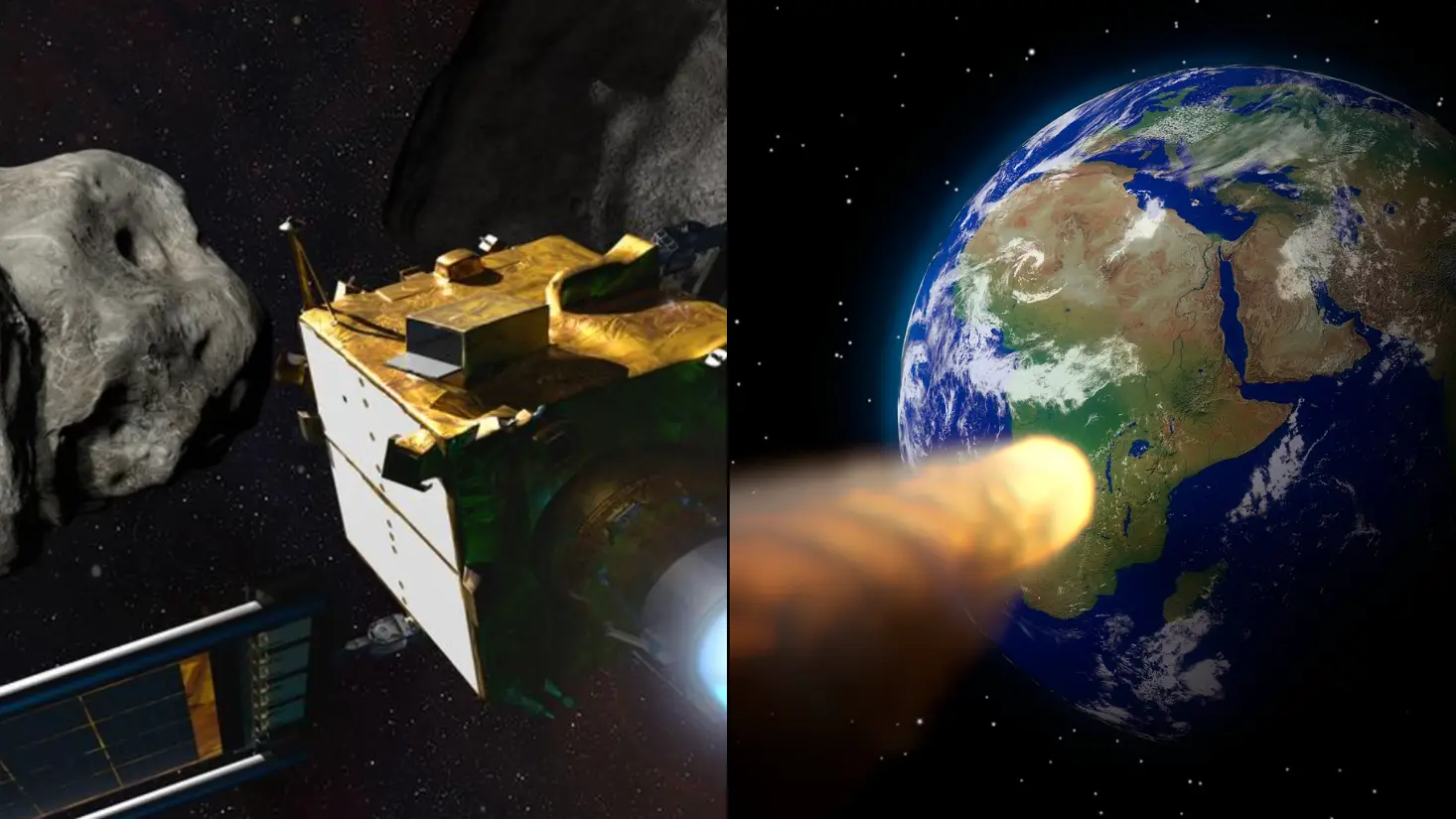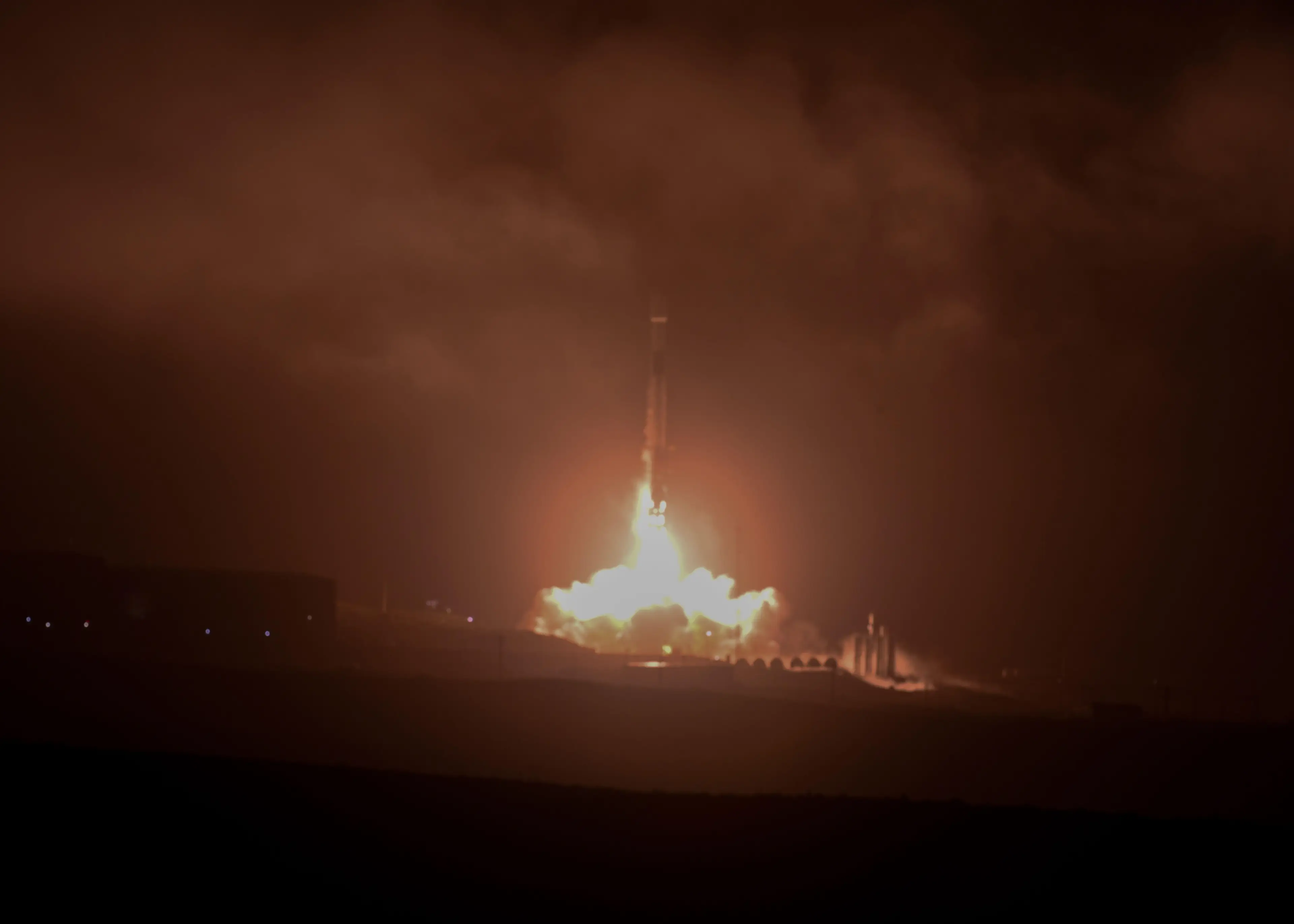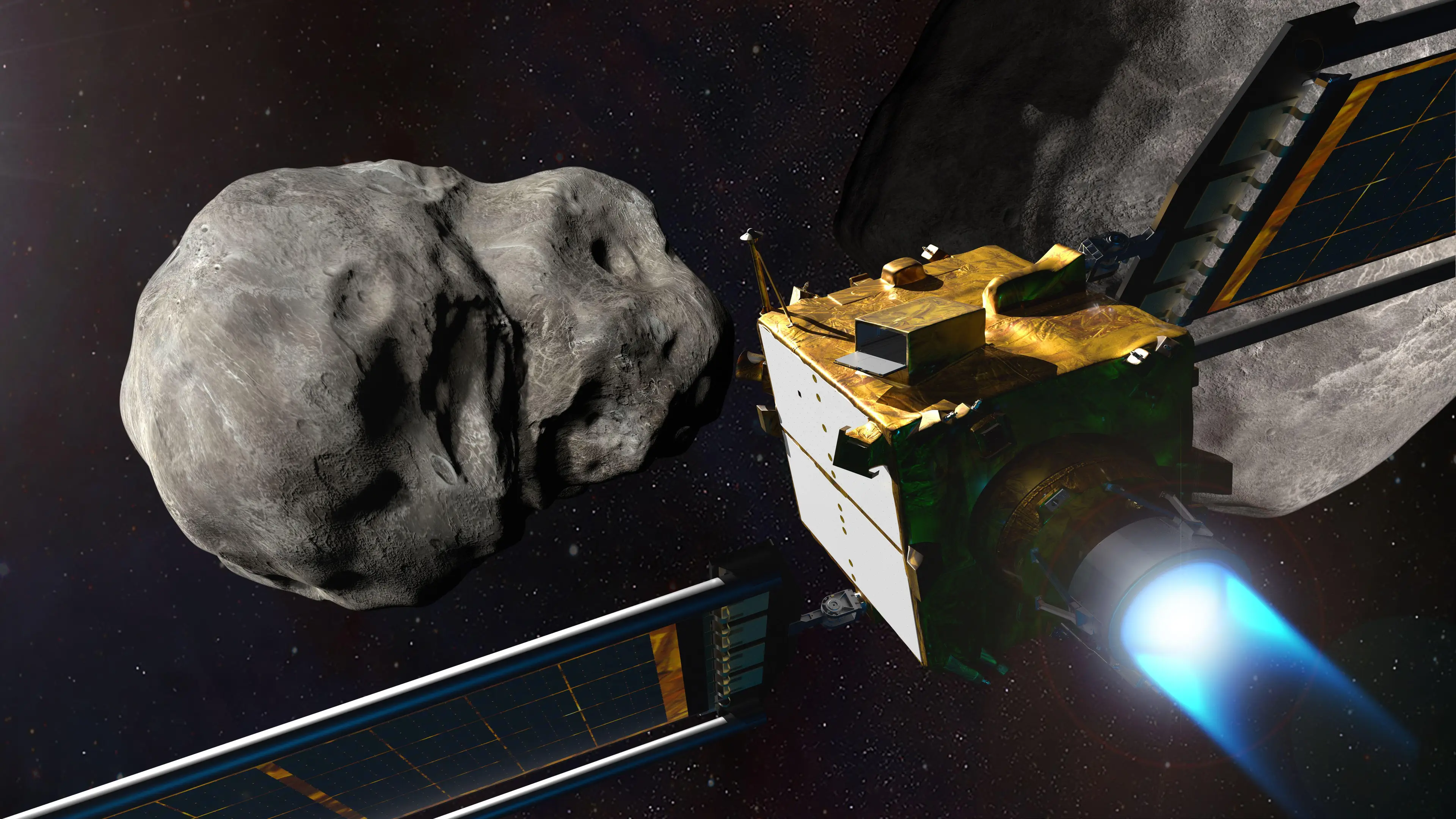
NASA plans to quite literally smash a £300m spaceship into an asteroid at 14,000mph tonight, for the first time ever.
The test is dubbed as the Double Asteroid Redirection Test or DART and will be the world’s first full scale test to see if the spacecraft can defend the Earth from a small asteroid or comet.
The test crash is designed for a Don’t Look Up scenario, where if a threatening astroid was to ever hit the earth, we'd be a bit more prepared.

Advert
The idea is that if the spaceship is able to nudge the astroid by just one percent, it could save the planet from any major damage.
Planetary defence officer for NASA Lindley Johnson said: "We don't want to be in a situation where an asteroid is headed toward Earth and then have to be testing this kind of capability.
"We want to know about both how the spacecraft works and what the reaction will be by the asteroid to the impact before we ever get in a situation like that.

"We don’t want to, at the last minute, say, ‘Oh, here’s something we hadn’t thought about or phenomena we hadn’t considered'.
"We want to be sure that any change we see is entirely due to what DART did.”
She added: "You would just give this asteroid a small nudge, which would add up to a big change in its future position, and then the asteroid and Earth wouldn't be on the collision course.
"You would just give this asteroid a small nudge, which would add up to a big change in its future position, and then the asteroid and Earth wouldn't be on the collision course."

Professor Alan Fitzsimmons from Queen’s University, a member of the NASA DART Investigation Team, and the ESA Hera Science Management Board, said: "DART will give us our first proof that we have the technology to prevent a small asteroid hitting Earth.
"I've been waiting 20 years to see a Planetary Defence test to be performed.
"The teams at NASA and APL are doing exactly what we need to do.
"Once the DART and follow-up Hera mission have been successfully completed, we'll have a much better idea how to protect ourselves against a catastrophic impact.
"The film may have been called Don't Look Up, but it's a good job we are."
The crash is due to happen at 12.14am GMT early tomorrow morning (27 September).
Topics: Space, World News